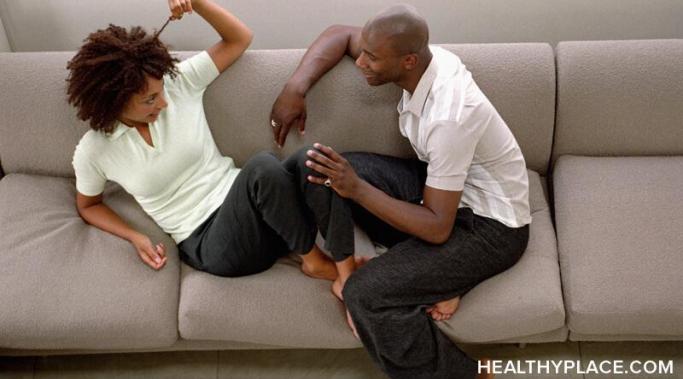Borderline personality disorder (BPD) carries a negative reputation. From professional psychologists to strangers on the Internet, there are many negative opinions about this personality disorder. But what does that mean for people who live with BPD?
BPD and Relationships
Tomorrow is my first anniversary of sobriety, so I'd like to discuss why I quit drinking alcohol for good. It hasn't been an easy road, but the rewards have been endless.
Accepting responsibility for past mistakes in relationships can be tricky when you live with a mental illness like borderline personality disorder (BPD). Because of my tendency for black and white thinking, I spent a lot of time refusing to own up to my part in relationship failures.
Borderline personality disorder (BPD) is one of the most stigmatized mental health conditions, along with conditions such as schizophrenia, dissociative identity disorder and other personality disorders. I have been discriminated against by healthcare professionals, struggled for years to talk openly due to stereotyping and see few compassionate representations of the condition in the media. There are three main myths about BPD and I will outline them here.
What are borderline personality disorder (BPD) and my fear of abandonment like for me? Borderline personality disorder keeps abandonment on my mind. I have a long-term and near-constant fear that the people I love are going to stop loving me. This fear of abandonment caused by BPD makes me worry that my relationships could be lost at any given moment and stops me from relaxing because I feel relentlessly on edge.
Dating with borderline personality disorder (BPD) may be difficult because BPD is marked by intense and stormy interpersonal relationships. It’s a part of the diagnostic criteria of BPD. In my own personal life, romantic relationships were often marked by drama and more drama. I brought drama and I attracted drama. So is it realistic for those of us with BPD to ever date again? Are we really capable of building healthy romantic relationships? With a little bit of work and commitment, I wholeheartedly believe this answer is yes. Whether or not we have BPD, we are human beings. And human beings are wired for relational connections, including romantic partnerships. Today, I’ll share some tips to keep in mind when dating with borderline personality disorder.
Are you in a romantic relationship with someone with borderline personality disorder (BPD)? I want to acknowledge that handling conflict within relationships where one person may have borderline personality disorder can be a sensitive topic for many, especially when talking about romantic relationships. It’s a challenging topic for those living with the diagnosis and those in close proximity to us. For me, making relationships work with borderline personality disorder is not about blaming and pointing the finger. It’s about both parties learning to relate to one another in a way that is healthy, reciprocal, and loving. Today I’ll share a few suggestions in thinking about the conflict you may be having with your loved one with borderline and some tips in the video below for handling conflict within the context of BPD (Borderline Rage: What I Wish People Knew About BPD and Anger). I share just from my personal experience and what has worked for me.
What should you do if you think your loved one has borderline personality disorder (BPD)? As I write More than Borderline, I write it from different perspectives and with different life experiences. I write it as a young woman living with diagnosed borderline personality disorder. I also write it as a woman who has loved many with BPD and who has had friends, acquaintances, and loved ones throughout my life that have displayed BPD symptoms. It’s touched my life in numerous ways. Without help, I know it’s a challenge to live with it; I know it’s a challenge to love someone with it. It’s especially challenging when we live in a society that doesn’t talk about mental illness enough and loved ones can feel just as frustrated and hopeless. As I’ve been more public about my diagnosis, many loved ones of those with BPD have reached out to me with questions about what they can do. In the spirit of Mental Health Awareness Month, I’ll be breaking down some helpful considerations into a two-part post on loving someone with borderline personality disorder. So, what should you do if you think your loved one has BPD?
People with borderline personality disorder (BPD) sometimes manipulate others to get the comfort or attention we need. Often, we don't even realize that we are being manipulative. Many of us never learned how to honestly ask for what we need or want. It starts with emotional pain. If we don't get the support we need in the midst of that pain, often feelings of anger arise, and we progress into new or worsening depression. Manipulation tactics then come into play, fueled by our anger that no one understands us. Manipulation in borderline personality disorder is important to understand.
People with borderline personality disorder (BPD) often have issues with abandonment (Common Borderline Personality Disorder Symptoms). Last week I terminated therapy with my therapist. I struggled with the decision, as I know that those of us with BPD sometimes blame others for our emotional pain. Therapists are frequently used, in acute stages of BPD, as the reason for all of our emotions, both pleasant and unpleasant. This can bring up abandonment issues for those with BPD.









